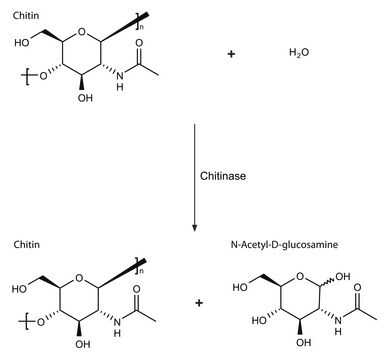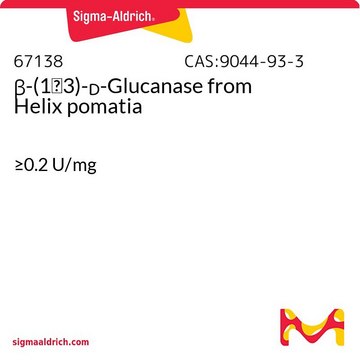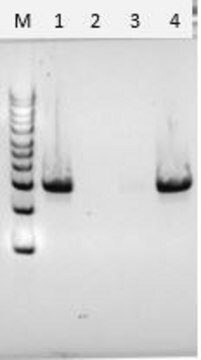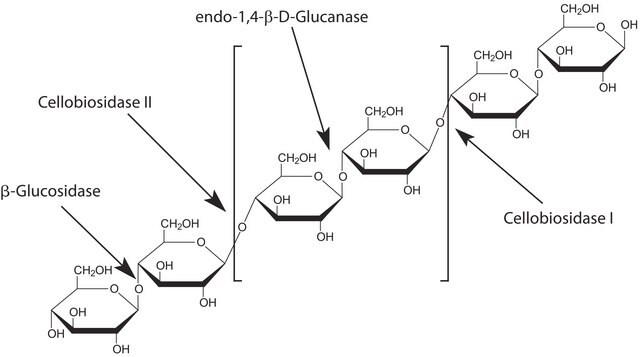L3768
Lysing Enzymes from Aspergillus sp.
powder
Synonym(s):
Cellulase, Lysing Enzymes, Pectinase
Sign Into View Organizational & Contract Pricing
All Photos(2)
About This Item
UNSPSC Code:
12352204
NACRES:
NA.54
Recommended Products
biological source
Aspergillus niger
Quality Level
form
powder
technique(s)
cell based assay: suitable
color
brown
suitability
suitable for cell lysis
application(s)
cell analysis
storage temp.
2-8°C
General description
Lysing enzymes are also known as lytic enzymes or cell wall lytic enzymes.
Application
Lysing Enzymes from Aspergillus sp. has been used to digest the cell walls to create pulse-field gel plugs.
Lysing Enzymes from Aspergillus sp. has been used:
- to digest the cell wall of Schizosaccharomyces pombe
- to lyse the mycelium cell wall of Trichoderma harzianum
Biochem/physiol Actions
Lysing enzymes are a group of enzymes that can break down the cell walls of microorganisms. These enzymes play a crucial role in various biological processes, including cell lysis, tissue dissociation, and protein extraction. Lysing enzymes are commonly used in research, biotechnology, and clinical applications. They are especially useful in DNA extraction, where they help to release genetic material from cells by breaking down the cell walls. This enables efficient isolation and purification of DNA for downstream analyses. Cellulases are a class of enzymes that degrade cellulose, a major component of plant cell walls, into simpler sugars. These sugars can be utilized as raw materials to produce biofuels, biobased chemicals, plastics, and various other materials. Pectinases are a group of enzymes that hydrolyze pectic substances found in microorganisms and higher plants. They can break down the pectin-containing compounds synthesized by plants and microbes.
Quality
Contains pectinase and cellulase activities.
Storage Class Code
11 - Combustible Solids
WGK
WGK 3
Flash Point(F)
Not applicable
Flash Point(C)
Not applicable
Choose from one of the most recent versions:
Already Own This Product?
Find documentation for the products that you have recently purchased in the Document Library.
Customers Also Viewed
Tara L Mastro et al.
Journal of cell science, 133(10) (2020-04-23)
Translesion synthesis polymerases (TLSPs) are non-essential error-prone enzymes that ensure cell survival by facilitating DNA replication in the presence of DNA damage. In addition to their role in bypassing lesions, TLSPs have been implicated in meiotic double-strand break repair in
Julie M Bailis et al.
Molecular and cellular biology, 28(5), 1724-1738 (2008-01-09)
The minichromosome maintenance (MCM) complex plays essential, conserved roles throughout DNA synthesis: first, as a component of the prereplication complex at origins and, then, as a helicase associated with replication forks. Here we use fission yeast (Schizosaccharomyces pombe) as a
Our team of scientists has experience in all areas of research including Life Science, Material Science, Chemical Synthesis, Chromatography, Analytical and many others.
Contact Technical Service







